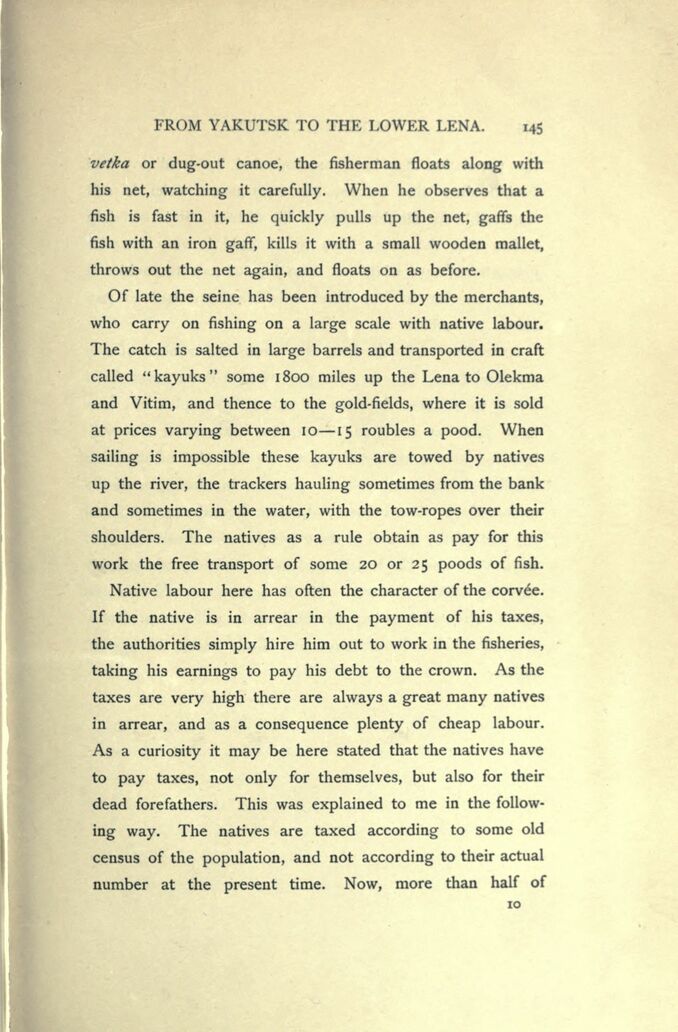
Full resolution (JPEG) - On this page / på denna sida - XIII. From Yakutsk to the Lower Lena

<< prev. page << föreg. sida << >> nästa sida >> next page >>
Below is the raw OCR text
from the above scanned image.
Do you see an error? Proofread the page now!
Här nedan syns maskintolkade texten från faksimilbilden ovan.
Ser du något fel? Korrekturläs sidan nu!
This page has been proofread at least once.
(diff)
(history)
Denna sida har korrekturlästs minst en gång.
(skillnad)
(historik)
vetka or dug-out canoe, the fisherman floats along with
his net, watching it carefully. When he observes that a
fish is fast in it, he quickly pulls up the net, gaffs the
fish with an iron gaff, kills it with a small wooden mallet,
throws out the net again, and floats on as before.
Of late the seine has been introduced by the merchants,
who carry on fishing on a large scale with native labour.
The catch is salted in large barrels and transported in craft
called “kayuks” some 1800 miles up the Lena to Olekma
and Vitim, and thence to the gold-fields, where it is sold
at prices varying between 10—15 roubles a pood. When
sailing is impossible these kayuks are towed by natives
up the river, the trackers hauling sometimes from the bank
and sometimes in the water, with the tow-ropes over their
shoulders. The natives as a rule obtain as pay for this
work the free transport of some 20 or 25 poods of fish.
Native labour here has often the character of the corvée.
If the native is in arrear in the payment of his taxes,
the authorities simply hire him out to work in the fisheries,
taking his earnings to pay his debt to the crown. As the
taxes are very high there are always a great many natives
in arrear, and as a consequence plenty of cheap labour.
As a curiosity it may be here stated that the natives have
to pay taxes, not only for themselves, but also for their
dead forefathers. This was explained to me in the
following way. The natives are taxed according to some old
census of the population, and not according to their actual
number at the present time. Now, more than half of
<< prev. page << föreg. sida << >> nästa sida >> next page >>